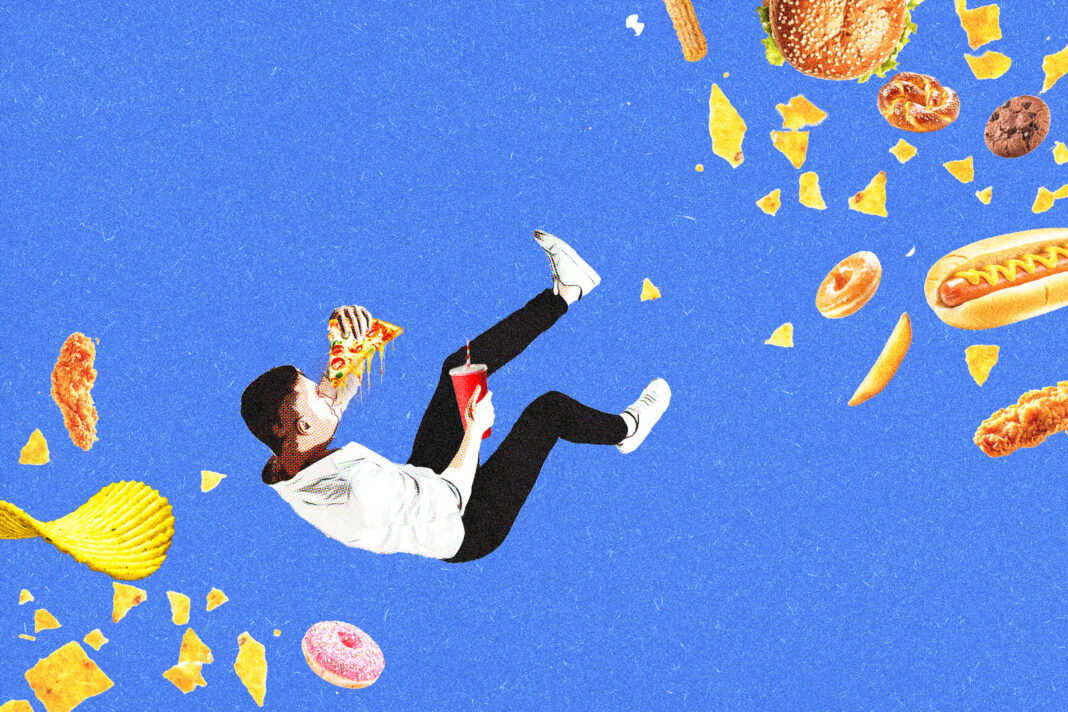Learn about the complexities of food addiction, its relationship with ultra-processed foods, and emerging treatment approaches.
Sunshine Gentile’s migraines started out feeling like the flu. She was 36 when they began, giving her an aching head and muscles and fatigue. The pain was worse if she moved around. Eventually, her migraines grew so bad that she’d be in bed for a week, and doctors couldn’t tell her why it was happening.
What she did know, and what frightened her, was that the painkillers the doctors prescribed either didn’t work for long or came with unbearable side effects.
“It was scary because being that young and seeing that I was burning through all those medications at that rate made me realize there’s not enough on the market to get me through the rest of my life,” Gentile told The Epoch Times.
Her family encouraged her to eliminate possible triggers like cleaners, perfumes, and detergents. When that didn’t work, she started giving up various foods. Nothing much changed when she gave up gluten, but cutting back on processed carbohydrates like sugars, breads, and pasta would deliver profound relief. Specialists told her that food wasn’t causing her issues, but experience told her otherwise.
“My neurology team was amazing, but they just didn’t know. They hadn’t experienced this with anybody before.”
Unfortunately, learning what caused her migraines wasn’t the end of her battle. For Gentile and many others with food addiction, resisting comfort foods—even when they bring pain and disease—can feel like a hopeless battle. Gentile would find herself giving up one food, feeling better, and discovering a substitute food also made her miserable.
Even with the cycle of crippling pain, she struggled to give up the foods at the center of her suffering. Her eventual recovery came when she could finally face and deal with her food addiction, a complex and sometimes controversial disorder that is closely linked to ultra-processed foods and their unusual effects on our brains and bodies.
Some experts suggest that we can crave certain foods that make it hard for us to give them up and cause withdrawal symptoms when we quit eating them. Studies suggest that ultra-processed foods, which are engineered to be tasty, might be addictive.
By Amy Denney








